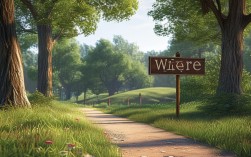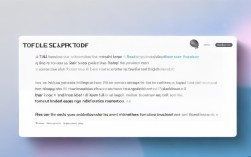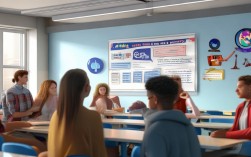总体备考策略
- 心态放平,交流为主:雅思口语是“说”出来的,不是“背”出来的,考官想看到的是一个能自如交流的人,而不是一个背诵机器,保持自然、友好的态度。
- 素材个性化:不要使用网上千篇一律的“万能答案”,将话题与你自己的真实经历、观点和感受结合起来,这样你的回答会更生动、更有说服力。
- 逻辑清晰:无论回答哪个部分,都要有清晰的结构,Part 2使用“故事四要素”(起因、经过、高潮、结果),Part 3使用“利弊分析/原因分析/对比分析”等逻辑结构。
- 词汇和语法多样化:有意识地使用一些不常用的词汇(同义词替换)和不同的句式(如从句、倒装句、强调句等),展示你的语言能力。
- 流利度与准确性的平衡:不要为了追求流利度而牺牲语法和词汇的准确性,适当放慢语速,确保每个词都说对,比磕磕巴巴说一堆错误的话要好得多。
Part 1: 热身与日常话题 (4-5分钟)
Part 1 的问题相对简单,主要考察你的日常交流能力,回答时,建议采用 “直接回答 + 简单解释/举例” 的结构,每个问题回答3-4句话即可。

高频话题预测及思路
Hometown / Accommodation (家乡/住所)
- Do you live in a house or an apartment?
- 思路: 直接回答 -> 描述一下 -> 说出喜欢/不喜欢的点。
- 范例: "I currently live in a cozy apartment located in the city center. It's not very spacious, but it's well-decorated and has a great view of the park from my window. I like it because it's convenient for commuting, though sometimes I dream of having a small garden."
- Do you like your hometown?
- 思路: 喜欢/不喜欢 -> 具体原因 (如食物、文化、环境、发展等)。
- 范例: "Yes, I'm quite fond of my hometown. It's a historic city with a rich cultural heritage. I love the old town area where you can find traditional architecture and taste authentic local snacks. It has a unique charm that bigger cities lack."
Work / Studies (工作/学习)
- What do you do? / What are you studying?
- 思路: 直接回答 -> 简要介绍工作/学习内容 -> 说出感受。
- 范例: "I'm a university student majoring in marketing. It's a dynamic field that I find very interesting. We study consumer behavior, brand management, and digital marketing strategies, which are all very practical."
- Is it easy to find a job in your major?
- 思路: 给出判断 -> 分析原因 (市场需求、竞争等) -> 个人看法。
- 范例: "I think it's moderately challenging. On one hand, the digital economy is booming, so there's a high demand for marketing professionals. On the other hand, the competition is also fierce because many graduates are well-equipped with the same skills. So, practical experience and a strong portfolio are crucial."
Daily Routine / Weekends (日常/周末)
- What's your typical weekday like?
- 思路: 按时间顺序描述 (早上、下午、晚上) -> 突出重点活动。
- 范例: "My weekdays are quite structured. I usually get up around 7 AM, have breakfast, and then head to work or class. In the evening, I prefer to unwind by reading a book or watching a series. It's a bit monotonous, but it helps me stay productive."
- Do you prefer weekdays or weekends? Why?
- 思路: 选择一方 -> 对比另一方的缺点 -> 解释原因。
- 范例: "Definitely weekends. Weekdays are all about responsibilities and routines, which can be a bit tiring. Weekends, however, give me the freedom to do what I love, like meeting friends or pursuing my hobbies. It's a perfect time to recharge for the week ahead."
Music / Films / Reading (兴趣)
- What kind of music do you like?
- 思路: 喜欢的类型 -> 为什么喜欢 (节奏、歌词、能带来什么感受) -> 举例歌手/乐队。
- 范例: "I'm a big fan of indie folk music. I love its mellow melodies and thoughtful lyrics, which are very soothing and help me relax when I'm stressed. Artists like Ed Sheeran and Passenger are some of my favorites."
- Do you prefer reading books or watching movies?
- 思路: 选择一方 -> 对比另一方的优缺点 -> 阐述个人偏好。
- 范例: "I'd say I prefer reading books. Movies are great for visual storytelling and saving time, but books allow my imagination to run wild. I can connect more deeply with the characters and the narrative when I'm reading at my own pace."
Part 2: 个人陈述 (3-4分钟)
这是考试的核心部分,考官会给你一张话题卡,上面有1分钟的准备时间和2分钟的回答时间,准备时,一定要利用好1分钟,在草稿纸上写下关键词,而不是写完整的句子。
高频话题预测及答题框架
预测话题1: Describe a time you were very busy.
- When? (e.g., final exam period, a big project at work)
- 答题框架 (故事四要素):
- 起因: "I'd like to talk about the time I was incredibly busy, which was during my final semester at university. I had to prepare for three major exams and finish my graduation thesis simultaneously."
- 经过: "It was extremely challenging. I basically lived in the library for a month. My days were packed with attending review classes, studying textbooks, and conducting research for my thesis. I had to sacrifice my social life and even cut down on sleep."
- 高潮/挑战: "The most stressful part was the deadline for my thesis. I had to write and edit a 20,000-word document, which was mentally exhausting. There were moments when I felt completely overwhelmed and wanted to give up."
- 结果/感受: "Fortunately, I managed to pull through by creating a strict schedule and staying disciplined. In the end, I got good grades for my exams and my thesis was awarded a high distinction. It was a tough period, but it taught me the importance of time management and resilience."
预测话题2: Describe a skill that you learned successfully.
- What skill? (e.g., cooking, coding, a language, driving)
- 答题框架:
- 是什么技能: "The skill I'd like to mention is learning to play the guitar. I've always been fascinated by music, and the guitar seemed like a versatile and cool instrument to master."
- 如何学的: "I started by taking online courses and watching tutorial videos on YouTube. At first, it was frustrating because my fingers hurt a lot from pressing the strings, and I couldn't even play a simple chord. But I practiced for at least 30 minutes every day without fail."
- 遇到的困难: "The biggest challenge was developing finger dexterity and rhythm. I had to practice basic scales and strumming patterns over and over again. There were days when I felt like I wasn't making any progress."
- 成功后的感受/用途: "The breakthrough came after about three months. I was finally able to play my first complete song, 'Wonderwall' by Oasis. The sense of accomplishment was immense. Now, I can play many of my favorite songs and even write my own simple melodies. It's not just a skill; it's a way for me to express myself."
预测话题3: Describe a book you have recently read.
- What book? (e.g., fiction, non-fiction)
- 答题框架:
- 书名和作者: "I recently read a fascinating non-fiction book called 'Sapiens: A Brief History of Humankind' by Yuval Noah Harari."
- : "The book explores the entire history of the human species, from the Stone Age to the modern era. It discusses how Homo sapiens came to dominate the world by creating and believing in shared myths like nations, religions, and money."
- 为什么读/喜欢哪里: "I chose it because I've always been curious about the big questions of human existence. What I loved most about it was the author's unique perspective. He connects history, biology, and











